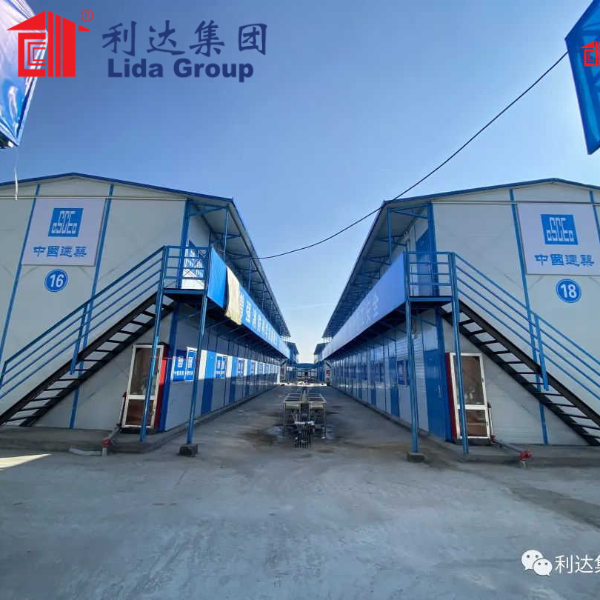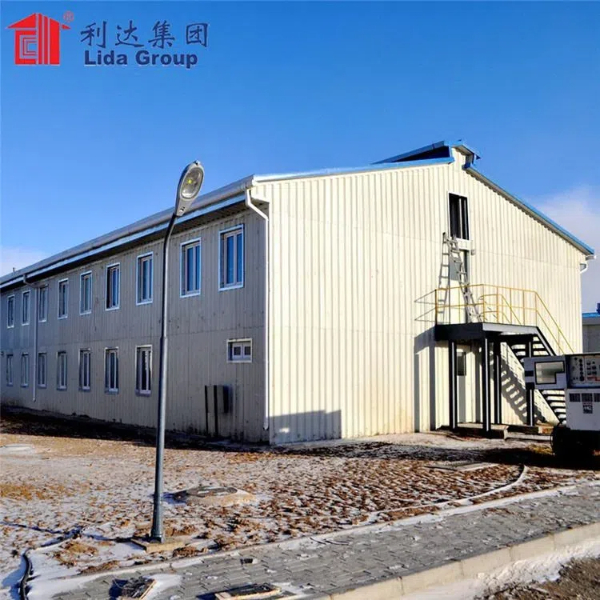Introduction
In today’s global economy, many industries, including construction, mining, and oil and gas, often require workers to operate in remote locations. Providing suitable living conditions for these workers is essential not only for their well-being but also for the overall productivity and success of projects. Traditionally, labor camps have been viewed as merely functional accommodations. However, the emergence of customized labor camps has revolutionized this perspective, emphasizing the importance of comfort, community, and welfare. This article explores the impact of customized labor camps on worker satisfaction, examining various aspects such as design, amenities, community building, and psychological well-being.
Understanding Worker Satisfaction
Defining Worker Satisfaction
Worker satisfaction refers to the level of contentment employees feel regarding their job and work environment. It encompasses various factors, including:
- Work Conditions: The physical and psychological environment in which workers operate, including safety and comfort.
- Compensation and Benefits: Salaries, bonuses, and additional benefits that contribute to overall job satisfaction.
- Work-Life Balance: The ability to manage work responsibilities alongside personal life, which can be influenced by living conditions.
- Community and Support: The sense of belonging and support among peers, which is crucial for mental well-being.
The Importance of Worker Satisfaction
High levels of worker satisfaction are linked to numerous positive outcomes, including:
- Increased Productivity: Satisfied workers are generally more motivated and productive.
- Lower Turnover Rates: Employees who are content with their working conditions are less likely to leave, reducing recruitment and training costs.
- Enhanced Safety: Workers who feel comfortable and satisfied are more likely to adhere to safety protocols, reducing accidents and injuries.
The Role of Labor Camps in Worker Satisfaction
Traditional Labor Camps: A Brief Overview
Historically, labor camps were often characterized by their basic amenities and utilitarian design. Key features included:
- Cramped Quarters: Shared sleeping arrangements that provided little privacy.
- Limited Facilities: Basic dining and recreational facilities that did not cater to the diverse needs of workers.
- Lack of Community Spaces: Minimal opportunities for social interaction, leading to feelings of isolation.
These conditions often led to dissatisfaction among workers, negatively impacting their morale and productivity.
The Shift Towards Customized Labor Camps
The shift towards customized labor camps represents a significant change in how companies approach worker accommodations. Customized labor camps are designed with the specific needs and preferences of workers in mind, leading to enhanced satisfaction. Key elements include:
- Tailored Design: Accommodation designs that reflect the preferences and cultural backgrounds of the workforce.
- Enhanced Amenities: Access to quality facilities that support comfort and well-being.
- Community Focus: Spaces designed to foster social interaction and a sense of belonging.
Key Features of Customized Labor Camps
1. Comfortable Living Spaces
One of the most critical aspects of customized labor camps is the focus on creating comfortable living spaces. This includes:
- Individual Quarters: Providing private sleeping arrangements allows workers to rest and recharge effectively.
- Quality Furnishings: Comfortable beds and modern furniture contribute to a more pleasant living environment.
2. Comprehensive Amenities
Customized labor camps often include a range of amenities designed to enhance the living experience for workers. These may include:
- Kitchen Facilities: Fully equipped kitchens allow workers to prepare their meals, promoting healthier eating habits and fostering a sense of home.
- Recreational Areas: Spaces for leisure activities, such as gyms, lounges, and outdoor areas, encourage relaxation and social interaction.
- Health Services: On-site medical facilities or wellness programs support physical and mental health, contributing to overall satisfaction.
3. Flexible Designs
Lida Group’s approach to customized labor camps emphasizes flexibility in design. This includes:
- Modular Construction: Modular units can be easily reconfigured to accommodate different workforce sizes and preferences.
- Cultural Sensitivity: Designs that consider the cultural backgrounds of workers, including prayer rooms or communal areas for specific activities.
4. Safety and Security
Safety is a paramount concern in any work environment. Customized labor camps prioritize safety through:
- Secure Access: Controlled entry points and security measures to ensure the safety of residents.
- Emergency Preparedness: Well-defined emergency plans and safety protocols enhance the feeling of security among workers.
The Psychological Impact of Customized Labor Camps
1. Mental Health and Well-Being
The living environment significantly impacts workers’ mental health. Customized labor camps contribute positively by:
- Reducing Stress: Comfortable and well-designed living spaces help alleviate stress, allowing workers to focus on their tasks.
- Fostering Social Connections: The inclusion of communal spaces encourages interaction and friendship, which are vital for mental well-being.
2. Sense of Belonging
A sense of belonging is crucial for worker satisfaction. Customized labor camps promote this through:
- Community Activities: Organized events and activities help build camaraderie among workers.
- Support Networks: Creating spaces for social interaction fosters a supportive community, reducing feelings of isolation.
3. Work-Life Balance
Customized labor camps can enhance work-life balance by:
- Providing Leisure Facilities: Access to recreational areas allows workers to unwind after long hours, contributing to a healthier work-life balance.
- Encouraging Healthy Routines: Facilities that promote physical activity and social interaction support overall well-being.
Case Studies: Success Stories of Customized Labor Camps
Case Study 1: Construction Project in Remote Area
Background
A large construction company operating in a remote area sought to improve worker satisfaction by investing in a customized labor camp for its workforce of over 200 employees.
Implementation
The customized labor camp featured:
- Individual Sleeping Units: Each worker had a private room, enhancing comfort and personal space.
- Modern Amenities: A fully equipped kitchen and recreational facilities, including a gym and lounge areas.
- Community Events: Regularly organized social activities to foster camaraderie among workers.
Results
- Increased Satisfaction: Feedback from workers indicated a significant improvement in satisfaction levels due to the quality of living conditions.
- Higher Productivity: The company reported enhanced productivity, attributing this to the comfortable and supportive living environment.
Case Study 2: Mining Operation Housing
Background
A mining company faced challenges with high turnover rates and low morale among its workforce. To address these issues, the company partnered with Lida Group to create a customized labor camp.
Implementation
The labor camp included:
- Durable Structures: Designed to withstand harsh weather conditions while ensuring safety and comfort.
- Health and Wellness Facilities: On-site health services and recreational areas to promote physical and mental well-being.
- Cultural Considerations: Spaces for communal activities and cultural practices.
Results
- Improved Retention Rates: The company noticed a decline in turnover rates as workers expressed greater satisfaction with their living conditions.
- Positive Community Atmosphere: The design fostered strong relationships among workers, enhancing teamwork and collaboration.
Economic Impact of Customized Labor Camps
1. Cost-Effectiveness
Investing in customized labor camps can lead to significant cost savings for companies. Key factors include:
- Lower Construction Costs: The use of prefabricated materials often results in reduced construction expenses compared to traditional building methods.
- Reduced Labor Costs: The efficiency of factory production minimizes labor requirements on-site.
2. Increased Productivity
By enhancing worker welfare, customized labor camps contribute to increased productivity:
- Higher Employee Satisfaction: Comfortable living conditions lead to happier workers, which translates to improved performance.
- Reduced Turnover Rates: Satisfied workers are more likely to stay with the company, reducing recruitment and training costs.
3. Long-Term Investment in Worker Welfare
Investing in customized labor camps reflects a commitment to worker welfare. Companies that prioritize the living conditions of their workforce often see benefits in employee retention and overall productivity.
Future Trends in Customized Labor Camps
1. Innovations in Design and Technology
The future of labor camps will increasingly focus on integrating innovative features to enhance worker satisfaction. Key trends include:
- Smart Technology Integration: Incorporating IoT devices for energy management, security, and convenience.
- Sustainable Materials: Utilizing eco-friendly materials and practices to minimize environmental impact.
2. Expansion into New Markets
As industries grow, so does the demand for effective labor camps. Customized solutions will be essential in meeting the needs of diverse workforces in emerging markets.
3. Emphasis on Mental Health
Recognizing the importance of mental health in the workplace, future labor camps will prioritize designs and amenities that promote psychological well-being.
Conclusion
Customized labor camps have a profound impact on worker satisfaction, transforming the way companies approach workforce housing. By prioritizing comfort, safety, and community, these innovative solutions address the challenges of traditional labor camps, fostering a positive living environment that enhances morale and productivity.
As industries continue to expand into remote locations, investing in quality living conditions for workers is essential for fostering a satisfied and productive workforce. The benefits of customized labor camps extend beyond individual satisfaction; they contribute to the overall success of projects and the companies that undertake them. By embracing the principles of customization and innovation, organizations can ensure they meet the evolving needs of their workforce, ultimately leading to a more engaged, productive, and satisfied employee base.
Contact Us
Post time: Nov-20-2024


